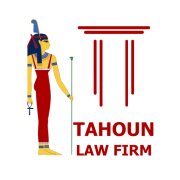Best Employment & Labor Lawyers in Egypt
Share your needs with us, get contacted by law firms.
Free. Takes 2 min.
Or refine your search by selecting a city:
List of the best lawyers in Egypt
About Employment & Labor Law in Egypt
Employment and labor law in Egypt is a comprehensive legal framework governing the relationship between employers and employees. It is designed to protect the rights and duties of each party involved. The primary legal statute is the Labor Law No. 12 of 2003, which addresses various aspects such as employment contracts, working conditions, wages, and termination. This law aims to establish a balanced relationship between employers and employees, ensuring fair treatment, decent work conditions, and protection from unfair dismissal.
Why You May Need a Lawyer
There are several situations where you may need the assistance of a lawyer specializing in employment and labor law in Egypt:
- Disputes regarding unfair dismissal or wrongful termination.
- Issues related to workplace discrimination or harassment.
- Negotiating employment contracts and understanding terms and conditions.
- Claims for unpaid wages or violation of labor rights.
- Handling labor disputes through mediation, arbitration, or litigation.
- Ensuring compliance with health and safety regulations in the workplace.
Local Laws Overview
The Labor Law No. 12 of 2003 is the cornerstone of employment legislation in Egypt. Key aspects include:
- Working Hours: Regular working hours should not exceed 8 hours a day or 48 hours a week.
- Minimum Wage: Set by government decree, ensuring a basic standard of living for workers.
- Overtime Pay: Employees are entitled to extra pay for hours worked beyond the regular working hours.
- Termination: Employees are protected against unfair dismissal, and specific procedures must be followed for layoffs.
- Leave Entitlement: Employees are entitled to annual, sick, and maternity leave, among others.
- Dispute Resolution: The law outlines mechanisms for resolving labor disputes through conciliation, arbitration, or courts.
Frequently Asked Questions
What is the legal minimum wage in Egypt?
The minimum wage in Egypt is determined by government authorities and varies depending on the sector. It is subject to periodic reviews and adjustments.
How are working hours regulated in Egypt?
The standard working hours should not exceed 8 hours per day or 48 hours per week, with rest periods included. Additional hours are considered overtime and must be compensated accordingly.
What are my rights if I am unfairly dismissed?
If you believe you have been unfairly dismissed, you have the right to appeal to the labor office and may pursue reinstatement or compensation through the labor court.
What entitlements do I have regarding paid leave?
Employees in Egypt are entitled to paid annual leave, sick leave, and maternity leave, with durations specified by the Labor Law.
How can I address workplace harassment or discrimination?
Workplace harassment or discrimination can be reported to your employer or the labor office. Legal remedies may include mediation or filing a lawsuit.
Can my employer change my employment contract without my consent?
Any significant changes to an employment contract require mutual consent. Unilateral changes by the employer can be contested legally.
What steps should I take if my employer does not pay my wages on time?
If wages are unpaid, you can file a complaint with the labor office and seek legal action to recover owed amounts.
Is there a legal provision for maternity leave?
The Labor Law provides for maternity leave, allowing a minimum of 90 days with full pay for female employees.
How are labor disputes resolved in Egypt?
Labor disputes can be resolved through mechanisms such as conciliation, arbitration, mediation, and, if necessary, through the labor courts.
What health and safety regulations exist in Egyptian workplaces?
Employers are required to comply with health and safety standards, including providing necessary protective gear, ensuring a safe working environment, and conducting regular safety training.
Additional Resources
For more information and assistance, consider reaching out to the following resources:
- The Ministry of Manpower of Egypt: Oversees labor regulations and workers' rights.
- Egyptian Trade Unions: Provide support and representation for workers across various sectors.
- Legal Aid Organizations: Offer free or low-cost legal advice and representation.
- Labor Courts: Handle disputes related to employment and labor issues.
Next Steps
If you need legal assistance in employment and labor matters, it is advisable to:
- Consult with a qualified lawyer specializing in employment and labor law.
- Gather all relevant documentation, such as employment contracts, pay slips, and correspondence with your employer.
- File a complaint with the Ministry of Manpower if needed.
- Consider mediation or arbitration as alternative dispute resolution methods before proceeding to court.
Taking these steps will help ensure your rights are protected and improve your chances of a favorable outcome in any employment-related legal issues.
Lawzana helps you find the best lawyers and law firms in Egypt through a curated and pre-screened list of qualified legal professionals. Our platform offers rankings and detailed profiles of attorneys and law firms, allowing you to compare based on practice areas, including Employment & Labor, experience, and client feedback.
Each profile includes a description of the firm's areas of practice, client reviews, team members and partners, year of establishment, spoken languages, office locations, contact information, social media presence, and any published articles or resources. Most firms on our platform speak English and are experienced in both local and international legal matters.
Get a quote from top-rated law firms in Egypt — quickly, securely, and without unnecessary hassle.
Disclaimer:
The information provided on this page is for general informational purposes only and does not constitute legal advice. While we strive to ensure the accuracy and relevance of the content, legal information may change over time, and interpretations of the law can vary. You should always consult with a qualified legal professional for advice specific to your situation.
We disclaim all liability for actions taken or not taken based on the content of this page. If you believe any information is incorrect or outdated, please contact us, and we will review and update it where appropriate.
Browse employment & labor law firms by service in Egypt
Egypt Attorneys in related practice areas.
Browse employment & labor law firms by city in Egypt
Refine your search by selecting a city.
















